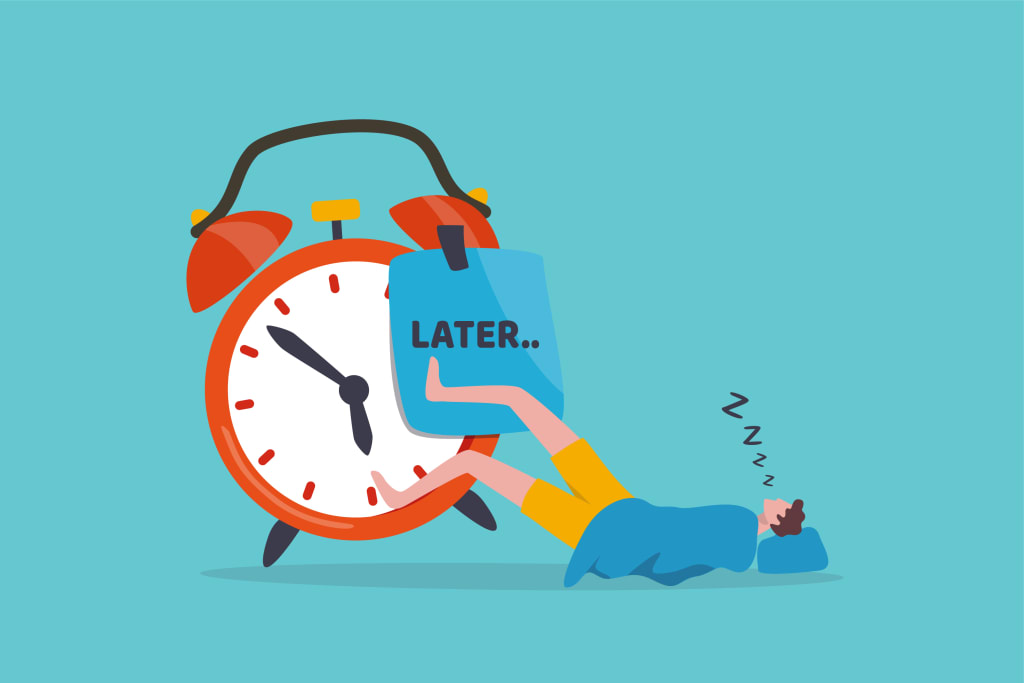Understanding and Overcoming Procrastination: Unlocking Your Productivity Potential
Embracing Proactive Strategies to Conquer Procrastination and Achieve Peak Performance

Procrastination is a familiar foe that many of us have battled at some point in our lives. We find ourselves trapped in a cycle of delaying tasks, succumbing to distractions, and feeling overwhelmed by impending deadlines. But why do we keep procrastinating even when we know it's detrimental to our productivity and well-being? In this blog, we will explore the underlying causes of procrastination, its effects on our mental health, and most importantly, effective strategies to break free from its grip. By understanding the psychology behind procrastination and implementing practical techniques, you can unlock your productivity potential and accomplish your goals with greater ease.
Understanding Procrastination
To combat procrastination effectively, we must first understand its roots. Procrastination is not merely laziness; it is a complex phenomenon influenced by our emotions and perceptions. When faced with a task we deem challenging or stressful, our brain triggers a fear response. The amygdala, responsible for processing emotions and identifying threats, releases hormones like adrenaline, leading to stress-induced panic. This emotional turmoil often overrides the rational thinking and long-term planning capacities of our prefrontal cortex, pushing us to seek temporary relief by avoiding the task at hand. Consequently, negative emotions such as dread, incompetence, and insecurity become associated with the task, further reinforcing the cycle of procrastination.
The Impact of Procrastination
Procrastination takes a toll on our mental health and overall well-being. Frequent procrastinators often experience heightened levels of anxiety, depression, and chronic stress. The constant weight of unfinished tasks and missed deadlines can lead to feelings of guilt, shame, and self-doubt. Moreover, the longer we put off a task, the more overwhelming it becomes, leading to a cycle of increased perceived difficulty and greater avoidance. This self-perpetuating loop erodes our confidence, hampers our productivity, and creates a sense of dissatisfaction with our accomplishments.
Breaking Free from Procrastination
Now that we understand the impact of procrastination, it's time to explore effective strategies to overcome it. While traditional wisdom advocates for discipline and strict time management, researchers suggest a different approach rooted in self-compassion and emotional regulation.
1. Set Clear Goals and Break Tasks Down: Start by setting specific, achievable goals and breaking them into smaller, manageable tasks. This approach makes the overall workload less daunting and allows for a sense of progress and accomplishment with each completed task.
2. Manage Your Environment: Identify and eliminate potential distractions from your workspace. Minimize access to social media, turn off notifications, and create an environment conducive to focused work. This proactive step reduces the likelihood of succumbing to temptations and getting sidetracked.
3. Practice Mindfulness and Emotional Regulation: Cultivate mindfulness techniques such as deep breathing exercises, meditation, or journaling to regulate your emotions. Acknowledge any negative feelings associated with the task at hand and explore ways to address them. Developing emotional resilience will empower you to face challenges head-on and diminish the urge to procrastinate.
4. Utilize Time-Management Techniques: Experiment with different time-management methods, such as the Pomodoro Technique or time-blocking. These approaches help break tasks into manageable time intervals, providing structure and preventing overwhelm.
5. Seek Accountability and Support: Share your goals and progress with a trusted friend, family member, or colleague who can provide support and hold you accountable. Having someone to check in with and share your journey can provide motivation and encouragement.
Procrastination is a common struggle that can hinder our personal and professional growth. By understanding the psychological factors driving our procrastination tendencies and adopting effective strategies to combat them, we can reclaim our productivity potential. Remember, overcoming procrastination is a gradual process that requires self-compassion, perseverance, and a commitment to personal growth. As you implement the strategies discussed in this blog, be patient with yourself and celebrate every step forward. By breaking free from the cycle of procrastination, you will not only enhance your productivity but also experience a greater sense of fulfillment and well-being in all areas of your life. So, embrace the challenge, take action, and unlock your true potential. The future you will thank you for it.





Comments
There are no comments for this story
Be the first to respond and start the conversation.